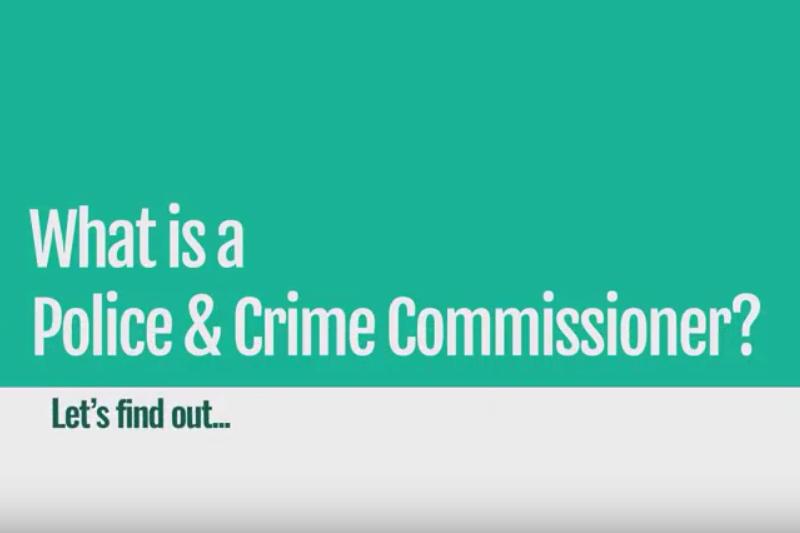The concept of Police and Crime Commissioners is not an easy sell. There, I’ve said it.
For a start the role of a Police and Crime Commissioner (PCC) is not, by nature, operational. PCCs do not turn up and help when you are in need or crisis, they do not arrest criminals, step in during altercations or police your street. They are therefore not likely to be the focus of a major, primetime TV drama anytime soon. That’s the reality.
Getting the message across about the role of PCCs and tackling the misconceptions and misinformation is important. It matters. Amongst many other things, PCCs are the means by which people’s views and priorities are reflected in the way their communities are policed.
Explaining the role and embedding it into the public consciousness is therefore going to take time. No surprise there.
From a communications and engagement viewpoint there is a danger that, if we don’t get the message across, the public could simply regard PCCs as a one-dimensional means to an end – a layer of governance for the police – and remain unaware of the vast “and crime”, victims’ services and commissioning parts of the role for a start.
And I’m sorry to say – and with humble apologies to performance and compliance colleagues – governance to the ‘woman or man in the street’ simply isn’t that sexy. Vital yes; sexy no.
Numerous consultation exercises in many a supermarket foyer down the years tell me that what most people want from their emergency services is to “be there when I need you”. Of course it depends on the questions asked and, of course, people have individual and/or community concerns and are generally happy to share them. People are, I think by nature, willing to share their thoughts and concerns on anything from precept to visible policing, but ultimately it does seem to come down to a very operational “be there when I need you”.
However, getting the message across about the role of PCCs and tackling the misconceptions and misinformation is important. It matters. Amongst many other things, PCCs are the means by which people’s views and priorities are reflected in the way their communities are policed, mainly via the Police and Crime Plan. PCCs are the victims’ champions; they are the conduit between community and crime prevention and they are the elected, public voice in policing and criminal justice. And there is the small matter of PCCs being responsible for millions of pounds of taxpayers’ money. In short, people need to know.
Explaining the role of a police and crime commissioner presents an interesting communications challenge in itself. There are the traditional media channels, but increasingly we live in a world of Bloggers and Vloggers, where content (and attention span?) is getting shorter and the message has to be delivered in a snappy, engaging style or be swiped into oblivion. I would argue that, online, anything over three minutes and you can pretty much forget it. You could argue anything over 90 seconds.
With all that in mind, the Norfolk Office of the Police and Crime Commissioner (OPCCN) decided that alongside our traditional media, communication and engagement activities, we would produce a 60-second video that would give people a flavour – the very basics – of the PCC role. That was the challenge.
Boiling down the role of a PCC into a minute was no easy task but, after using up a lot of whiteboard marker, we came up with a general overview we were happy with. Produced in-house at a cost of under £100, our original short animation was launched through our social and digital media channels last summer. And we kept pumping it out. To date it has been viewed more than 10,000 times.
Over the last few months we have been working with the Association of Police and Crime Commissioners to produce a generic version (which we re-edited and re-designed with all Norfolk references taken out) with the same aims – to be simple and short enough to be watched, but informative enough for anyone wishing to understand the role.
The brief was for the video to be generic so it could be used by anyone to explain the role of PCCs, in the run up to the elections and beyond. Again we were never going to get close to shoehorning it all in – but hopefully we’ve covered the very basics.
If you like the 60-second video, please feel free to share it.


